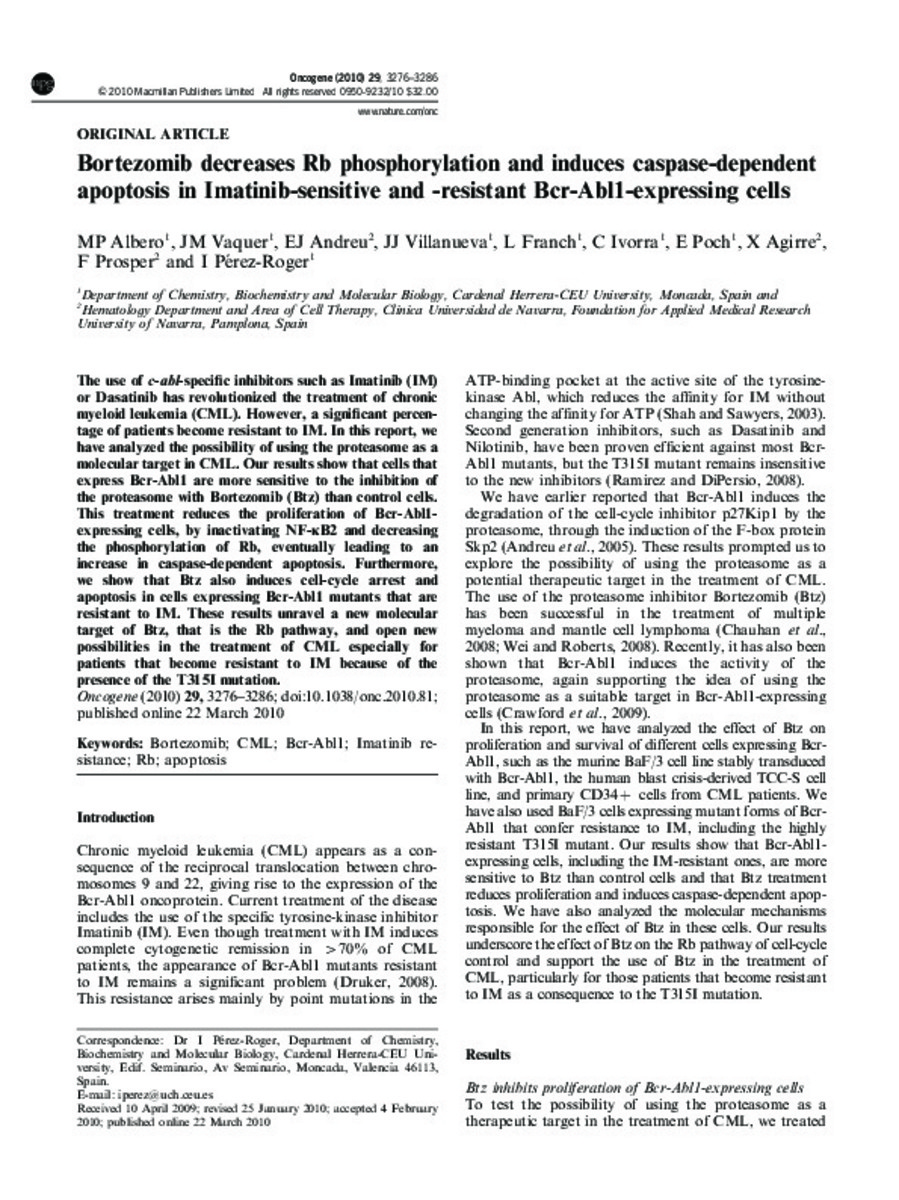Bortezomib decreases Rb phosphorylation and induces caspase-dependent apoptosis in Imatinib-sensitive and -resistant Bcr-Abl1-expressing cells
Palabras clave :
Bortezomib
CML
Bcr-Abl1
Imatinib resistance
Rb
Apoptosis
Fecha de publicación :
2010
Editorial :
Nature Publishing Group
Cita:
Albero, M.P., Vaquer, J.M., Andreu, E.J., Villanueva, J.J. et al. Bortezomib decreases Rb phosphorylation and induces caspase-dependent apoptosis in Imatinib-sensitive and -resistant Bcr-Abl1-expressing cells. Oncogene 2010; 29: 3276–3286
Aparece en las colecciones:
Estadísticas e impacto
0 citas en

Los ítems de Dadun están protegidos por copyright, con todos los derechos reservados, a menos que se indique lo contrario.







